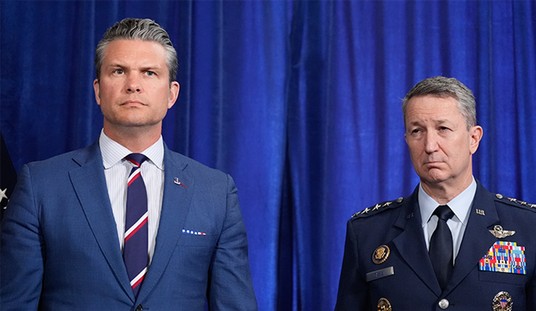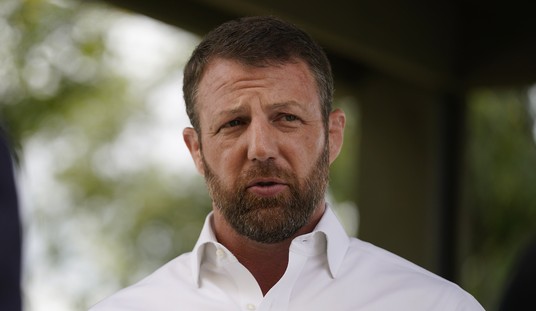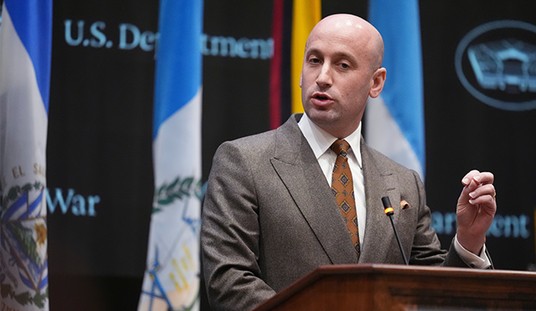Yesterday, the Senate Judiciary Committee held a hearing on the constitutionality of ObamaCare. Senator Mike Lee (R-UT) questioned Walter Dellinger, former Clinton Solicitor General for the 1996-97 term and law professor at Duke, about his views on the individual mandate provision in the law. The questioning of Professor Dellinger on the constitutionality of the individual mandate was a preview of the debate that we shall see before the U.S. Supreme Court.
[youtube][http://youtu.be/wEiPDMOzZYE)[/youtube]
The questioning was intense and Senator Lee probed Dellinger on the limits of the commerce power of the federal government. Senator Lee at one point asked Professor Dellinger to if he agreed with the statement “while the powers of the federal government are few and defined, those reserved to the states are numerous and indefinite.” Dellinger said that he agreed. That agreement was the only meeting of the minds on the proper interpretation of the Commerce Clause of the U.S. Constitution.
Senator Lee proposed a hypothetical for Professor Dellinger to consider.
And yet, if this law is upheld. If this law is within Congress’ limited power to regulate commerce among the states. Notice it didn’t say commerce — it said commerce among the several states and with foreign nations. If this is within Congress’ power, wouldn’t it also be within Congress’ power to tell every American, including you and me and everyone in this room, that we must eat four servings of green leafy vegetables each day?
Dellinger immediately responded “no.” Opponents of ObamaCare argue that there are limits to the power of the federal government and the individual mandate is outside the powers of the federal government as mapped out in the Constitution. Dellinger agrees that there are some limits to federal power.
This debate centers on a proper interpretation of the Commerce Clause of the Constitution. Article 1, Sec. 8 of the Constitution states that the Congress has the power to regulate Commerce “among the several States.”
The Congress shall have Power …….To regulate Commerce with foreign Nations, and among the several States, and with the Indian Tribes;”
Senator Lee argued that it is not within the Commerce Clause power of the federal government for an individual to be forced by the federal government to eat four servings of green leafy vegetables each day. Lee asked Dellinger outside the proper scope of the federal government.
Dellinger responded by saying the following:
Regulation of commerce, to be constitutional, has to be a permissible regulation of commerce. And something that intrudes on the area of personal autonomy does not meet that standard like—“
Lee interrupted and said “like say where to go to the doctor and how to pay for it.” Senator Lee made a strong point. Dellinger’s standard that government action is not authorized by the Constitution if it “intrudes on the area of personal autonomy” may have been met with Senator Lee’s hypothetical.
One could argue that the individual mandate does not meet the Dellinger “personal autonomy” standard. If an individual is forced to purchase insurance from a limited universe of health care companies, then doesn’t that forcing of an individual to see government approved doctors and buy government approved health insurance a violation the “personal autonomy” of an individual? I would say yes, but that is the Dellinger standard and not a standard that will be dispositive on the issue.
Dellinger explained that there are two Supreme Court cases on point that speak to the regulation of the forced eating of vegetables. Dellinger considers this to be “local non-economic matter,” dealing “whether you eat or whether you exercise.” Dellinger implied that the two cases that speak to local non-economic matters were interpretations of the commerce clause speak to the Lee hypothetical, yet not to the individual mandate.
Dellinger argued that the individual mandate is a “direct regulation of commercial activity,” unlike the green vegetable mandate which is something that “affects a commercial activity.” This hypothetical was exhausted then, Senator Lee shifted the hypothetical to further test the constitutional theory of Professor Dellinger. Senator Lee proposed another hypothetical to see if Dellinger believed it would be constitutional to force an individual to budget for vegetables.
You must take the first 200 dollars out of each month’s earnings and purchase the equivalent of 4 servings of green leafy vegetables to eat a day. This is all of a sudden commercial activity.
Dellinger ignored hypothetical number two and went right into his case for the mandate. he argued that “there are two responses to the argument that upholding this (the individual mandate) would stand for the proposition that Congress can force people to buy anything.”
The first is that this (the mandate) is a requirement that you make provision to buy something that you can not ever be assured that you will not use and can not be assured that you will not transfer the cost to others. So I think it is distinguishable.
Dellinger set up a two part test to assert the constitutionality of the mandate. Because you are being forced to buy something “you can not ever be assured that you will not use” and “can not be assured that you will not transfer cost to others,” therefore a mandate passes this test. What else would pass this test? A mandate that you eat vitamins every day could pass this test. You can’t assure anybody that you will not need vitamins nor that you will not pass on the cost to others if the feds decide to cover the cost of vitamins. You could add any and all drugs to the list, because the costs of many drugs are born by the federal government through research and development tax benefits and the direct subsidization of drugs for the elderly in Medicare. Under Dellinger’s test, all Americans could be mandated to buy and store away drugs to treat cancer, colds or any other ailment.
Dellinger made another argument about the form of Mike Lee’s argument.
But secondly, the very form of that argument was used to attack the minimum wage and social security.
Dellinger with an attack on the “form of argument” and implied that Congress would never force people to eat four green leafy vegetables a day. That argument is a dodge, because it does not address whether it would be constitutional for the federal government to set the minimum wage at “$5 thousand an hour” or “if you buy one car you have to buy three cars” or set the “retirement age at 25.” Just because Congress probably will not mandate that everybody eat green vegetables, does not address the issue if the federal government can.
Dellinger concludes that the individual mandate forcing all Americans to buy a privately marketed product (no matter what the cost) is a “completely unremarkable regulation of an important national market.” That could be the understatement of the year. The debate over ObamaCare and the individual mandate has sucked the air out of a national debate on so many other issues. The mandate has consumed hundreds of man hours in preparing lawyers in four federal cases and many more hundreds of hours as this case makes it’s way to the U.S. Supreme Court.
Dellinger is widely considered one of the most adept constitutional scholars on the left and Senator Lee proved to be an emerging great leader of constitutional conservatism on the right. This debate will be repeated over and over again, yet we shall not see to highly trained and intelligent individuals engage each other until we see this case before the Supremes. One can only hope that the justices are not swayed by view that the Commerce Clause recognizes virtually unlimited powers for the federal government.














Join the conversation as a VIP Member